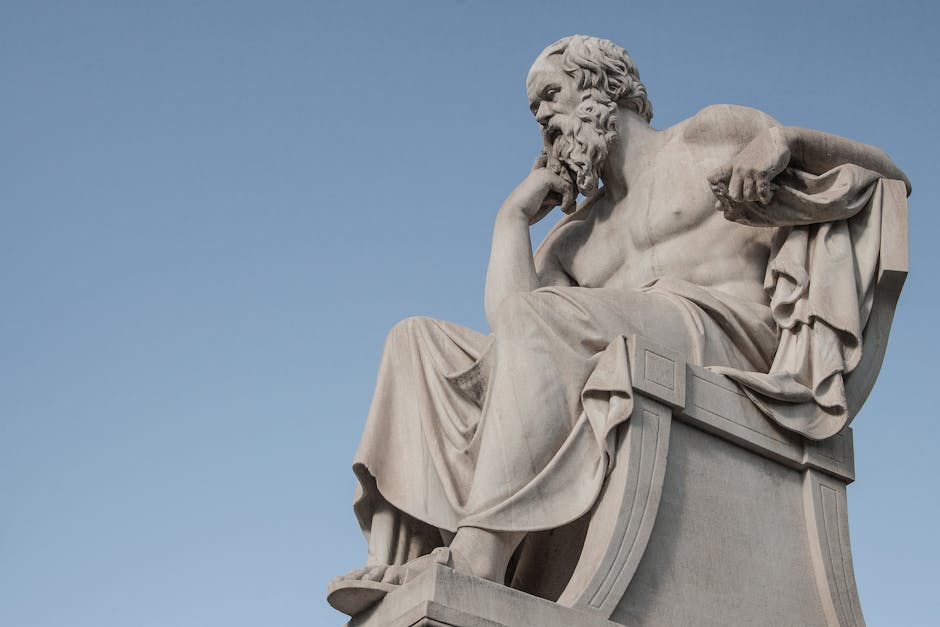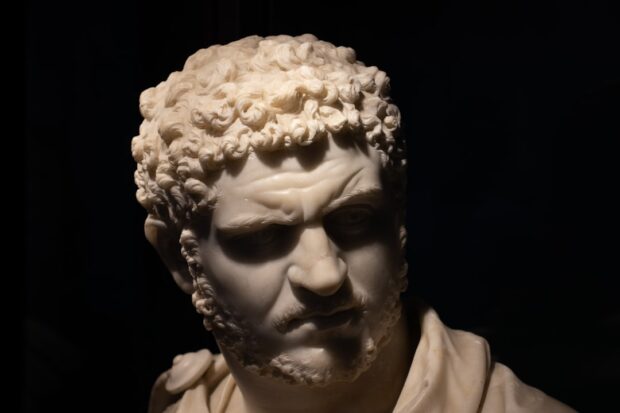
Brigid Delaney Stoicism is where ancient wisdom meets modern life. In times of chaos, her book, Reasons Not to Worry: How to Be Stoic in Chaotic Times, offers a refreshing guide on applying Stoic principles today. Stoicism, an ancient philosophy founded in Athens around 350 BCE, emphasizes resilience and emotional control. With a focus on what you can control—your actions, reactions, character, and how you treat others—Stoicism provides tools for navigating modern challenges like work stress and global uncertainties. Brigid Delaney, journalist and speechwriter, brings her lived experiences to make these timeless teachings engaging and applicable.
- Ancient Philosopher Inspirations: Thinkers like Marcus Aurelius, Seneca, and Epictetus guide Stoicism’s core virtues.
- Modern Applications: From career decisions to pandemic coping, Delaney demonstrates Stoicism’s timeless relevance.
- Emotional Control and Resilience: Focus only on what you can control to achieve peace and happiness.
As digitaljeff, I bring two decades of storytelling and tech-savvy expertise to explore Brigid Delaney Stoicism. From filmmaking to digital strategy, I’ve learned to structure content for clarity and impact—perfect for delivering these philosophical insights.

Easy brigid delaney stoicism glossary:
– a guide to stoicism by st george stock
– robert greene stoicism
– stoicism in relationships
The Foundations of Stoicism
Stoicism is built on four core virtues: wisdom, justice, courage, and moderation. These virtues serve as guiding principles for living a virtuous and fulfilling life.
The Four Virtues Explained
-
Wisdom: This is about making sound judgments and decisions. Wisdom involves understanding what is truly important and acting accordingly. It’s the ability to see things clearly and make choices that align with one’s values.
-
Justice: Justice in Stoicism refers to treating others fairly and with respect. It emphasizes the importance of community and the idea that one’s actions should contribute to the greater good.
-
Courage: Courage is not just about facing physical danger but also about standing up for what is right and true. It involves the strength to pursue one’s goals despite fear or adversity.
-
Moderation: Also known as temperance, moderation is about self-control and balance. It’s the ability to enjoy life’s pleasures without overindulging or becoming dependent on them.
These virtues have roots in Socratic ideals and are central to the teachings of key Stoic philosophers.
Key Stoic Philosophers
The history of Stoicism is rich with influential figures who have shaped its teachings:
-
Zeno of Citium: The founder of Stoicism, Zeno established the philosophy in Athens around 350 BCE. He emphasized living in harmony with nature and the importance of rational thought.
-
Marcus Aurelius: As a Roman emperor, Marcus Aurelius practiced Stoicism in his daily life. His work, Meditations, offers personal reflections on how to live a life of virtue amidst the challenges of leadership.
-
Epictetus: Once a slave, Epictetus taught that while external circumstances are beyond our control, our reactions to them are not. His teachings, compiled in the Enchiridion, highlight the importance of focusing on what we can control—our actions and character.
-
Seneca: A statesman and philosopher, Seneca wrote extensively on Stoic ethics. He advised on how to handle adversity and the importance of living a balanced life. His letters and essays remain a cornerstone of Stoic literature.

These philosophers laid the groundwork for Stoicism, providing a framework for Brigid Delaney and others to apply these ancient teachings to modern life.
Brigid Delaney’s Stoic Practices
Brigid Delaney has acceptd Stoicism as a way to steer the chaos of modern life. Her approach is practical and grounded in the core teachings of Stoic philosophers like Epictetus and Seneca. Let’s explore some of her key Stoic practices.
The Control Test
At the heart of Brigid Delaney’s Stoic practices is the control test. Inspired by Epictetus’ teachings in the Enchiridion, this test helps distinguish between what we can and cannot control. According to Epictetus, the only things truly within our control are our actions, reactions, and character. Everything else—like desires, money, health, and reputation—is outside our control.
Example: When Brigid applied for a pay rise and didn’t get it, she used the control test to manage her reaction. She realized that while she couldn’t control her boss’s decision, she could control how she responded. This insight helped her maintain her tranquility and focus on what she could influence—her work performance and attitude.
Practicing Indifference
A key Stoic principle is indifference to things beyond our control. This mindset helps prevent what Stoics call “suffering twice”—the initial pain of an event and the additional suffering from our emotional response. By cultivating indifference, we can maintain tranquility even in adverse situations.
Example: Stoics like Seneca advised practicing voluntary hardship to prepare for potential loss. By fasting or wearing simple clothes, they asked themselves, “Is this the condition that I feared?” Often, the answer revealed that the feared condition was not as bad as imagined.
Voluntary Hardship and Imagining Death
Practicing voluntary hardship helps build resilience. Seneca’s advice to his friend Lucilius about fasting was not just about food but about facing life’s uncertainties. Similarly, imagining death regularly helps us appreciate life and prepare for inevitable losses.
Example: The Stoics believed in grieving loved ones while they’re still alive. By contemplating their mortality, we learn to cherish our time with them and let go of grudges, as Seneca suggested, “Let us greedily enjoy our friends.”
Managing Judgments and Reactions
Stoicism teaches that events are neutral; it’s our judgments that color them. By adopting a “view from above,” we can see situations objectively and maintain a state of ataraxia—peace of mind.
Example: If someone reacts negatively to our actions, Stoicism reminds us that their reaction is beyond our control. We should focus instead on our own behavior, ensuring it aligns with Stoic virtues like wisdom and justice.
Moderation and Giving
Moderation is a Stoic virtue that helps avoid excess. Whether it’s wine or wealth, Stoics like Epictetus advised treating them with indifference to prevent addiction.
Example: In giving, Seneca advised doing so without expecting anything in return. This approach minimizes disappointment and fosters genuine generosity.
Overcoming Fomo and Relaxation
The fear of missing out (Fomo) is not new. Stoics like Epictetus taught that if you aren’t invited to something, it’s a test of character. Instead of feeling bitter, focus on what you gain instead, like extra time or money.
Example: The Stoics aimed to maximize joy and minimize suffering. They sought relaxation not by avoiding life’s challenges but by facing them with a calm mind. As Marcus Aurelius wrote, “Never let the future disturb you.”
By applying these Stoic practices, Brigid Delaney offers a roadmap for leading a calmer, happier life amidst modern chaos.
Conclusion
Brigid Delaney has skillfully adapted the ancient philosophy of Stoicism to address the complexities of modern life. Her book, Reasons Not to Worry: How to Be Stoic in Chaotic Times, serves as a practical guide for those seeking tranquility and agency in a world often filled with uncertainty and stress.
Delaney’s journey with Stoicism began with a simple curiosity and evolved into a profound exploration of its principles. She found solace in the teachings of Stoic philosophers like Epictetus and Seneca, especially during challenging times like the COVID-19 pandemic. By focusing on what is within her control—her actions, reactions, and character—Delaney demonstrates how Stoicism can be a powerful tool for personal growth and emotional resilience.
Incorporating Stoic practices such as the control test, practicing indifference, and embracing voluntary hardship, Delaney provides readers with actionable steps to cultivate a Stoic mindset. These practices encourage us to let go of the need to control external events and instead focus on our internal responses. This shift in perspective not only reduces anxiety but also improves our ability to steer life’s ups and downs with grace and composure.
By embracing Stoicism, we can learn to live more intentionally, finding peace in the present moment and building a life grounded in virtue and purpose. Delaney’s work is a testament to the enduring relevance of Stoic philosophy, offering a guide of calm in an often chaotic world.
For those interested in further exploring Stoic principles and their application in modern life, we invite you to visit our Stoicism page. Here, you’ll find a wealth of resources and tools designed to help you integrate Stoic wisdom into your daily routine and achieve a more balanced, fulfilling life.

















